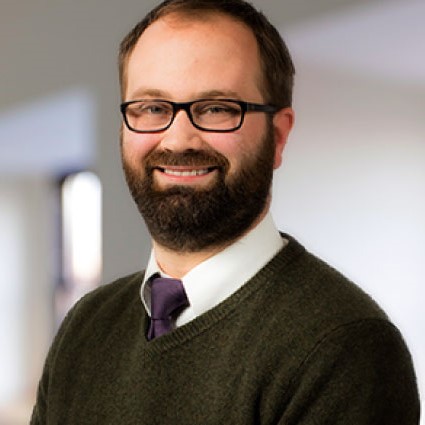Do yoga and meditation really help people with PTSD? I’ve tried each a few times and I cannot focus or keep my thoughts clear. How can these possibly help? And how do I know if I am doing these practices right? Dr. Klassen answers your questions about mental health treatment.
Brian Klassen, PhD, is the Clinical Director of the Road Home Program, part of the Wounded Warrior Project's Warrior Care Network.
For information about treatments for PTSD please visit The Treatment Hub.
Hi, I’m Dr. Brian Klassen. I’m a psychologist and here’s our question: “I’ve tried both meditation and yoga, once or twice, and I can’t focus or keep my thoughts clear. How can they possibly help my PTSD?”
Fantastic question. I think there’s a couple different responses that I’d like to give. I think first of all is that we have pretty good evidence from the research literature that yoga and meditation are helpful interventions for PTSD. There are a couple reasons for this. I think first of all is that yoga and meditation and help you, kind of, clean out all the racing thoughts that are in your head and it kind of helps you focus and get a little clearer.
Now this is not to say that it’s easy because, like, you alluded to in the question, it’s just really hard at first to focus and keep your thoughts clear. Now this is something that a lot of people, when they’re getting started with yoga and meditation say is that they’re surprised, actually, at how much their mind wanders and how, the kinds of things that they’re saying to themselves, this kind of self-critical, pretty negative things that they are saying to themselves and it can be sort of a frightening or off-putting experience at first.
I’m here to say, I want to encourage you that if you’re having a hard time with it at first, you’re probably doing it right. That it should be hard at first. And it’s just like anything else. If you think about running a marathon or trying to like lift more weight in the gym, you want to do things that are challenging in order to adapt and grow and become stronger and more in control of your thoughts, more in control of your emotions.
And so absolutely, if you’re having a hard time, if you are frustrated by it, I think you’re doing it right. The way that yoga and meditation can help as well is it really helps people just feel more comfortable in their body. I think people with PTSD and anxiety and depression often aren’t living in the present moment, so to speak.
They’re sort of consumed with thoughts about something that did happen already, whether it’s past trauma or something that might happen, something that they’re worried about in the future. Or things that they blame themselves for, things that they are very critical of themselves for.
And so, what I really like about meditation and yoga is that there are very kind of insistent about this practice of like really try to just be in your body, be in the present moment and kind of clear out your thoughts from there. So, I think in summary, if you’re frustrated, if it’s hard, I think you’re doing it right.
I’d encourage you to keep going and maybe kind of talk with other veterans, kind of get a peer group together, maybe talk with a yoga instructor or a mindfulness instructor or a therapist about ways to kind of help encourage you and keep you going with the practice. I think before long you’ll find that you’ll be glad you did. Thank you for the question.
BrainLine is powered in part by Wounded Warrior Project, to honor and empower post-9/11 injured service members, veterans and their families.
About the author: Brian Klassen, PhD
Brian Klassen, Ph.D., is the Clinical Director for The Road Home Program: The National Center of Excellence for Veterans and Their Families at Rush University in Chicago, Illinois. Brian spent his formative years training at the Jesse Brown VA Medical Center, completing rotations in chronic pain management, residential substance use disorder treatment, and PTSD. Brian has special expertise in providing front-line treatments for PTSD, including Prolonged Exposure and Cognitive Processing Therapy.

